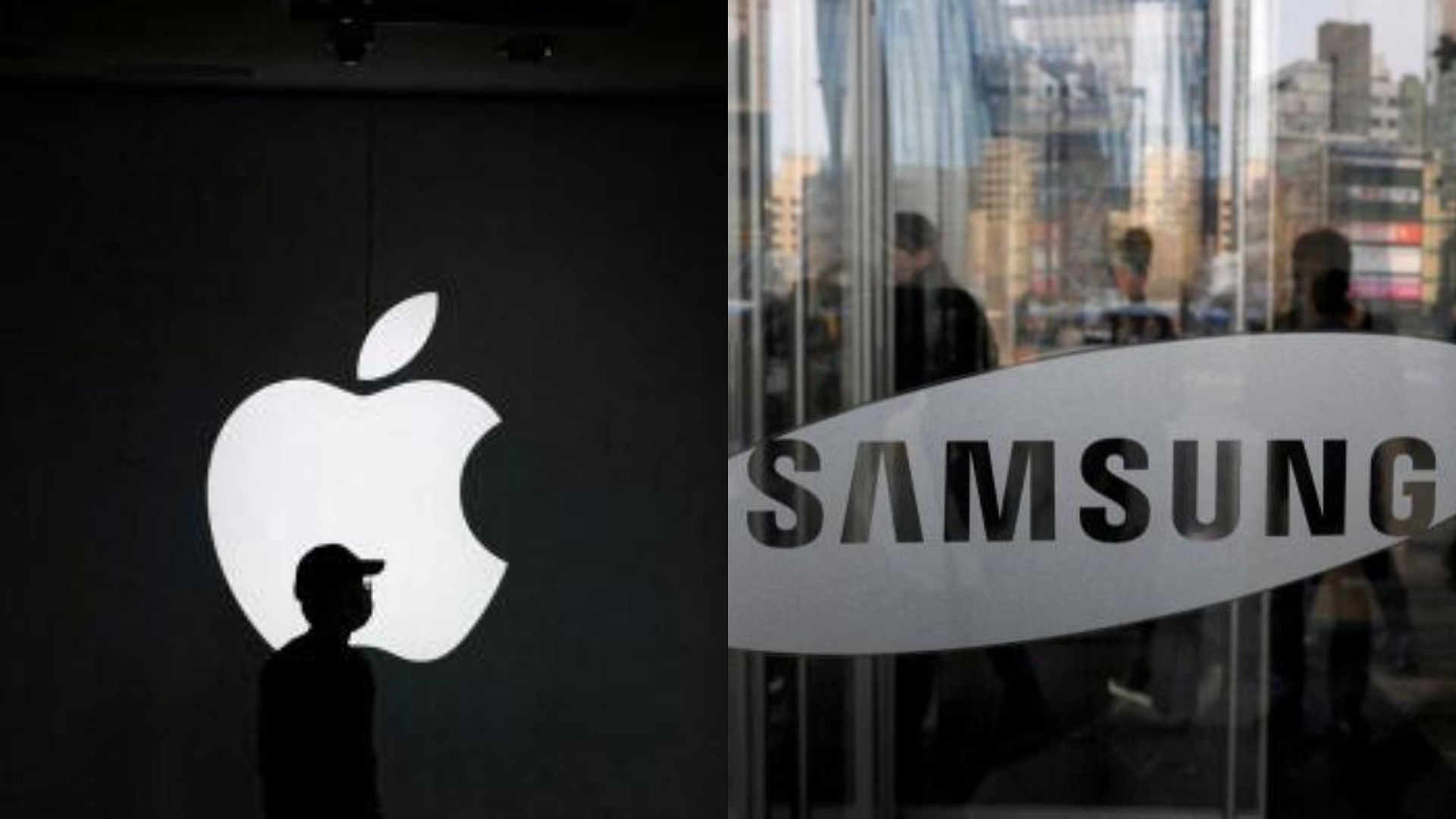
Apple and Samsung logos.
Credit: Reuters Photos
Apple's smartphone shipments dropped about 10 per cent in the first quarter of 2024, hurt by intensifying competition by Android smartphone makers aiming for the top spot, data from research firm IDC showed on Sunday.
Global smartphone shipments increased 7.8 per cent to 289.4 million units during January-March, with Samsung, at 20.8 per cent market share, clinching the top phonemaker spot from Apple.
The iPhone-maker's steep sales decline comes after its strong performance in the December quarter when it overtook Samsung as the world's No.1 phone maker. It's back to the second spot, with 17.3 per cent market share, as Chinese brands such as Huawei gain market share.
Xiaomi, one of China's top smartphone makers, occupied the third position with a market share of 14.1 per cent during the first quarter.
South Korea's Samsung, which launched its latest flagship smartphone lineup - Galaxy S24 series - in the beginning of the year, shipped more than 60 million phones during the period.
Global sales of Galaxy S24 smartphones jumped 8%, compared to last year's Galaxy S23 series during their first three weeks of availability, data provider Counterpoint previously said.
In the first quarter, Apple shipped 50.1 million iPhones, down from 55.4 million units it shipped same period last year, according to IDC.
Apple's smartphone shipments in China shrank 2.1 per cent in the final quarter of 2023 from a year earlier.
The drop underscores the challenges facing the US firm in its third biggest market, as some Chinese companies and government agencies limit employees' use of Apple devices, a measure that mirrors US government restrictions on Chinese apps on security grounds.
The Cupertino, California-based company in June will hold its Worldwide Developers Conference (WWDC), where it will highlight updates to the software powering iPhones, iPads, and other Apple devices.
Investors are closely watching for updates on artificial intelligence development at Apple, which has so far spoken little about incorporating the AI technology into its devices. The company earlier this year lost the crown as the world's most valuable company to Microsoft.